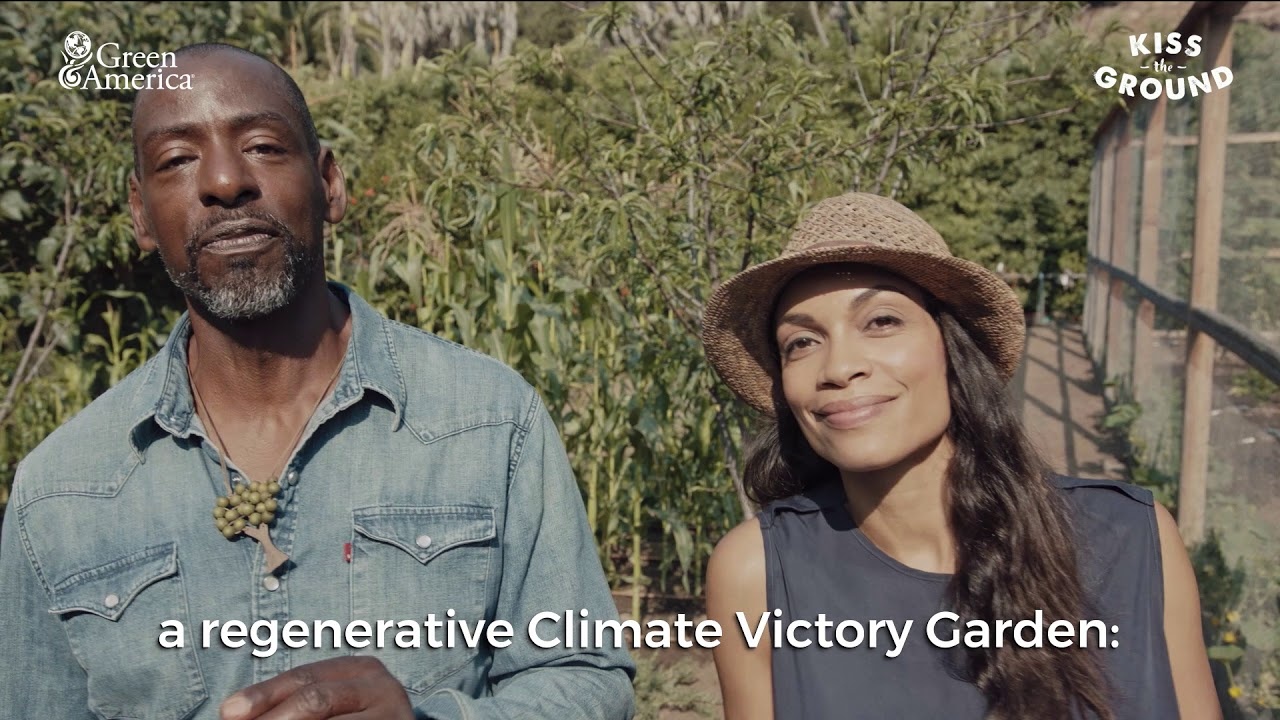

Planting a garden has the power to change the world. Regenerative gardens can help reverse global warming by restoring soil health. We’re bringing victory gardens back. This time, it’s for the climate.
Our friends Ron Finley and Rosario Dawson explain how you can make your home garden regenerative in this new video premiere from Kiss The Ground and Green America.
What is a Climate Victory Garden and Why Is It Important?
“Climate Victory Gardens” were inspired by the “Victory Gardens” planted during the first and second World Wars. By 1944, nearly 20 million victory gardens produced eight million tons of food, equaling over 40 percent of the fresh fruits and vegetables consumed in the U.S. at the time. These victory gardens fed Americans at home, to make more farm-raised food available for the troops abroad.
We are once again in the position where we, as everyday citizens, have the opportunity to use our gardens as a force for change. Instead of gardening in support of war efforts, we are gardening to fight global warming.
Even your small home garden can utilize regenerative farming practices like keeping the soil covered, not tilling, encouraging biodiversity, using compost, avoiding the use of chemicals and creating fertility onsite.
“We have communities nationwide that are food prisons that could be producing their own organic food while addressing climate change. By educating the public about regeneratively homegrown food, Climate Victory Gardens are raising awareness about one of the biggest global challenges of our time and showing Americans how they can make a difference for themselves, their households, and their communities. Soil Equals Life.”
— Ron Finley of The Ron Finley Project
A very special thanks to Green America, Rosario Dawson, Ron Finley and the Ron Finley Project, our amazing film crew and to Kellogg Garden Products for their support in bringing this video to life—and thank YOU in advance for helping us share this video and supporting the regeneration of our planet, one garden at a time.

 233k
233k  41k
41k  Subscribe
Subscribe 